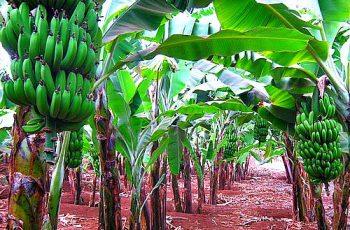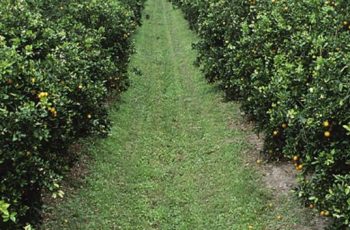How To Start Cowpea Farming In Nigeria: All You Need To Know

Cowpea farming is a great opportunity for you to start earning big money from the agricultural sector in Nigeria. It is no longer news to you that the agricultural sector of Nigeria is so diverse, ranging from tree and food crops to forestry, livestock, and fishery. Cowpea is one of the many food crops fetching lots of money for farmers in Nigeria. Nigeria is the largest consumer and producer of cowpea in the whole of Africa.
See: How to make millions from soybeans farming in Nigeria
What this means is that cowpea farming business in Nigeria is really a goldmine that you should explore. Cowpea is a very good source of protein in both rural and urban areas in Nigeria. This wonderful food crop in Nigeria contains 64% carbohydrate and 25% protein. The food crop cowpea (Vigna unguiculata) is one of the many species of cowpea that is cultivated in Nigeria.
One thing that is in favor of cowpea farming in Nigeria is that cowpeas are well-adapted to drought and drier regions of the tropics I Nigeria. This is the major reason why cowpea production in Northern Nigeria is on the high. On a general note, cowpea production in Nigeria is worth investing into as you will see in the course of reading this article.
The objective of this article is to bring you detailed and factual information regarding cowpea farming in Nigeria. This will be achieved by telling you all there is to know about;
- Cowpea production in Nigeria
- Cowpea production in Northern Nigeria
- The economic importance of cowpea
- Cowpea production guide in Nigeria
- Method of propagation of cowpea, and
- Agronomic practice in cowpea production
Why you should venture into cowpea farming in Nigeria
If you are asking yourself, why cowpea farming of all food crops in Nigeria? I will help you with some answers to clear your doubt. Some reasons why you should really consider cowpea farming business in Nigeria include:
-
The profitability of cowpea farming in Nigeria
Just like stated earlier, Nigeria is the largest consumer of cowpea in the whole of the African continent. What this means is that there is a very large market for cowpea so long as Nigeria is concerned. So, if you are into cowpea farming you are sure that millions of families are in demand of your farm produce.
Read: How to start millet farming and make millions in Nigeria
The Dawanau market in Kano state is the largest cowpea market in the world. It only means that cowpea production in Northern Nigeria is really booming.
-
The adaptability of cowpea in Nigeria
Another reason you should be interested in cowpea farming in Nigeria is the fact that the cowpea crop is very drought resistant crop and grows very well in areas where other legumes fail to grow. It will be of interest to you to know that the cowpea crop has the ability to fix atmospheric nitrogen through its root nodules.
This makes the cowpea crop to grow very well in soils that are poor in nutrients, like having less than 0.2% of organic matter and very low levels of phosphorous. Cowpea also replenishes low fertility soils.
-
Nutritional value of cowpea
The cowpea grain contains about 25% protein and 64% carbohydrate, thereby making it very nutritious for consumers. You can use the cowpea flour to prepare Akara (the fried cowpea paste), danwake (cowpea dumplings) and other very nutritious meals. The cowpea crop is also very rich in potassium, calcium, vitamin A, thiamine, riboflavin, and vitamin B6.
Cowpea cultivation in Nigeria
Before venturing into cowpea farming in Nigeria, you need to understand the method of propagation of cowpea. You need a detailed cowpea production guide in Nigeria. Understanding the method of propagation of cowpea in Nigeria will greatly improve your chances of succeeding in your cowpea farming business venture.
Also Related: How to start Irish potato farming in Nigeria
When you consider the agronomic practice in cowpea production in Nigeria, you are going to understand that cowpea farming can be done in both rain-fed irrigation based conditions. Cowpea farming is highly favored by a temperature range of 28-300 C and rainfall range that is between 500-1200mm per year.
It has been observed that the cowpea yield per hectare in Nigeria is very low. This can be attributed to factors such as weather conditions, parasitic insects or weeds, and diseases. However, you can improve your cowpea yield per hectare in Nigeria by making use of improved pest-resistant and high yielding cowpea varieties.
If you imbibe the aforementioned guidelines, your cowpea farming business will greatly flourish in Nigeria. Your ability to follow through with the method of propagation of cowpea mentioned above will really improve your cowpea farming business in Nigeria.
Harvesting your cowpea

As a cowpea farmer, you can harvest your crops in three different stages. For harvesting your cowpea, you can do that when the pods are young and green, mature and green, and when the pods are mature and dry. More than 4.5 million hectares of land are harvested annually in Nigeria.
This is of the more than 11 million hectares that are harvested annually worldwide. You can see that the cowpea production in Nigeria is really on a high. So, venturing into cowpea farming today won’t be a bad idea at all.
Challenges of cowpea farming in Nigeria
In order to be successful in your cowpea farming business in Nigeria, you need to know how to overcome these challenges that try to hinder your success in cowpea farming. Cowpea crop is attacked by pest at every stage of its development in the farm. The Aphid pests attack the crop while at the seedling stage, extracting juice from its leaves and stems. Aphids also spread the cowpea mosaic virus.
During the flowering stage of the cowpea growth, the flowers are feasted upon by flower thrips. Pod borers attack the pods during pod growth, while bruchid weevils attack the already harvested cowpea seeds. Diseases caused by fungi, bacteria, and virus also attack the cowpea crop.
Parasitic weeds such as the Striga and Alectra choke the cowpea crop at all stages of growth in the farm. Nematodes also attack cowpeas, preventing their roots from absorbing water and nutrients from the soil.
The International Institute for Tropical Agriculture (IITA) have developed cowpea varieties that are resistant to some of the major diseases of cowpea in Nigeria.
ATTENTION…
For your well-detailed business plan on any business niche in Nigeria, contact us on +2347037281050. Your business will be ready just within 2 weeks of your order. Make that call today and I know you will be glad you did.
Leave your contributions and questions about cowpea farming in Nigeria in the comment box provided below


Lizzy
Pls where can I buy pearl millet,pls reply Asap